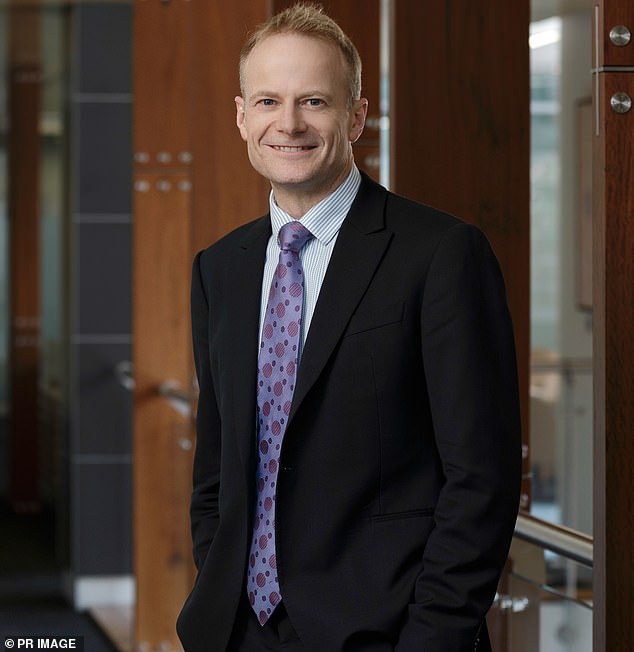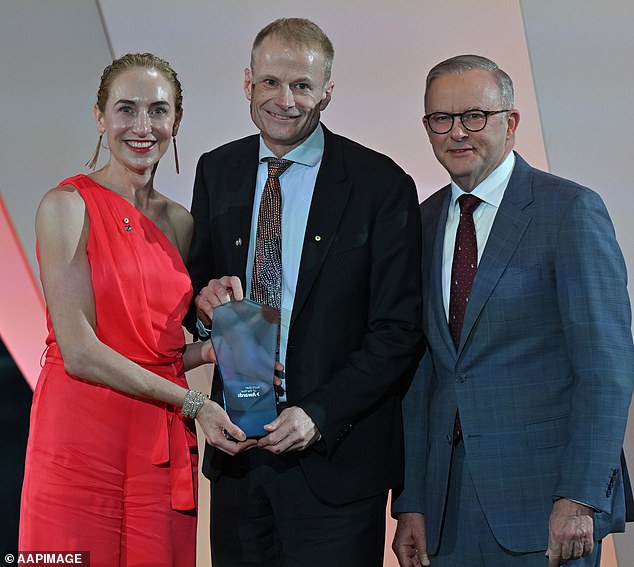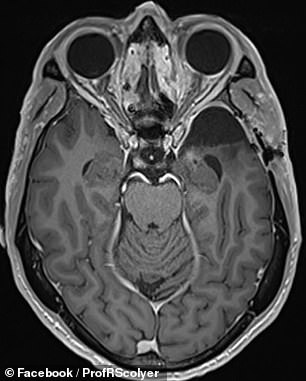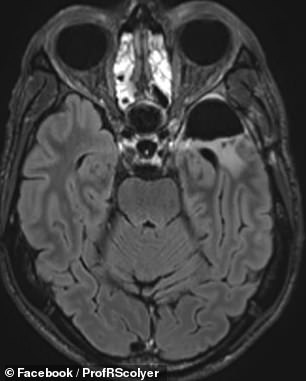<!–
<!–
<!– <!–
<!–
<!–
<!–
A professor named Australian of the Year has revealed he is cancer-free after undergoing a high-risk, world-first treatment based on his own research.
Professor Richard Scolyer was diagnosed with incurable grade 4 brain cancer after a seizure in Poland last year.
Determined to overcome the impossible, the father of three decided to adapt a treatment he had developed to treat melanoma and use it on his own condition.
Prof. Scolyer revealed on Tuesday that there was no recurrence of his disease after he became the first brain cancer patient to receive a combination immunotherapy before surgery.

Professor Richard Scolyer was diagnosed with incurable grade 4 brain cancer after a seizure in Poland last year
‘My latest MRI brain scan shows no recurrence 10 months since my glioblastoma had a seizure in Poland. The median time to recurrence is 6 months,’ he wrote on Facebook.
‘I am extremely hopeful that the new neoadjuvant combination immunotherapy I have received and the scientific changes we demonstrated in my tumor post versus pre-immunotherapy will translate into clinical benefit!
‘I would be thrilled and very proud if this new approach makes a difference to me and future brain cancer patients.’
Professor Scolyer and his colleague and fellow Australian, Professor Georgina Long, have developed a number of world-leading treatments following their extensive research into immunotherapy.
Their ground-breaking treatment approach activates a melanoma patient’s immune system – unlike surgery and chemo or radiotherapy – meaning the malignant condition can now be cured.
They had found that for patients with melanoma, treatment was much more effective if immunotherapy had been done before the tumor was removed, as opposed to after.
The research prompted Professor Scolyer to try the same method on his own brain cancer, making him the first in the world to do so.


Professor Scolyer and his colleague and fellow Australian, Professor Georgina Long, (pictured with Prime Minister Anthony Albanese) have developed a number of world-leading treatments following their extensive research into immunotherapy
Prof Scolyer thanked Prof Long for her help in ‘conceiving and facilitating this excellent approach’.
It didn’t take long for Professor Scolyer to agree after she suggested they try the melanoma treatment for brain cancer.
But other specialists were not convinced about the treatment as it is ‘high risk’ and not ‘standard therapy’.
‘I am only one patient. To really know if something like this works, you have to do it as part of a clinical trial in a group of patients, and I know that the data that we’ve generated has really excited the field, and there are people working around the world to develop a clinical trial,’ he said Sky News.
He added that he was lucky not to suffer any side effects so far.
The average survival rate for those with a glioblastoma tumor is about 14 months.
Professor Scolyer and Professor Long’s work in melanoma treatment were crowned 2024 Australians of the Year in January.
They are also co-medical directors of the Melanoma Institute Australia.




‘My latest MRI brain scan shows no recurrence 10 months since my glioblastoma had a seizure in Poland. Median time to recurrence is 6 months,’ he wrote on Facebook (pictured, Prof Scolyer’s brain scans)
